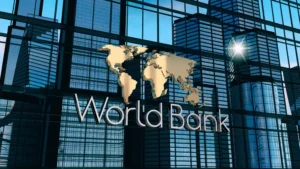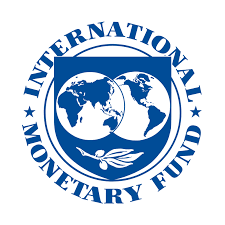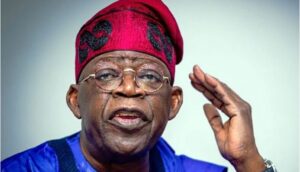By Princess Gloria Adebajo-Fraser. MFR.
The National Patriots.
Nigeria’s reform path under President Tinubu has drawn international applause for restoring macro stability. But behind the headlines lie brutal conditions imposed by the Bretton Woods institutions — conditions that have made life unbearable for many ordinary Nigerians. Now the same institutions are turning around and blaming Nigerians for “not feeling the gains” of those reforms. That is hypocritical. It’s time to call a spade a spade.

Strings Attached: The Burden of Conditionality
When Nigeria turned to the World Bank and IMF for support, the loans did not come as blank checks. They came with strict, often punitive, conditionalities — demands to cut subsidies, cap public spending, liberalize markets, privatize state assets, reduce public sector wages, and raise “efficiency” in revenue collection. These are not neutral technical rules; they directly shape who bears the adjustment cost.
The IMF’s own factsheet on conditionality states that conditions are used to ensure that countries follow agreed policies, safeguard repayment capacity, and protect the institution’s resources.
But in practice, many of these conditions reduce fiscal space, forcing cuts in health, education, and welfare precisely when people most need them. Academic reviews confirm that IMF loan conditions tend to reduce social spending, slow health and education expansion, and raise burdens on the poor via regressive taxes.

In Africa, the record is littered with failed programs: between 1982 and 1984, six of twenty IMF stand-by arrangements were never fully used or were cancelled because recipient countries could not meet the performance criteria.
Even Ghana’s health sector suffered: in 2005, IMF conditions imposed wage ceilings on public service recruitment. Ghanaian health officials reported that the number of physicians halved under that constraint.
So when the World Bank now says “Nigerians are not feeling the gains,” it ignores the fact that its own demands helped block the gains from reaching people.
The Hypocrisy of Blame: They Knew the Pain Would Be Felt
To claim “reforms are necessary, but the people lag behind” is safe rhetoric when you never owned the redistribution challenge. The World Bank and IMF should own their share of responsibility. If 139 million Nigerians live in poverty today, it is not just Nigeria’s failure — it is a failure of the reform model they designed and enforced.

The institutions cannot credibly wash their hands now: they knew from decades of evidence that shock-oriented programs without cushioning would hurt the poor first. Yet they pushed for austerity, fiscal restraint, and structural adjustment as prerequisites — even when many countries begged for leeway.
It is not just fair to demand renegotiation — it is necessary. They must relax conditionalities, allow more flexible public spending, permit temporary subsidies or social programs during transition, and prioritize the poor in loan treaties.
Historical Examples: When Borrowers Bled While Creditors Profited
Latin America: Argentina
Argentina’s repeated IMF bailouts came with steep austerity, privatization, and deflationary policies. The social impact was harsh — unemployment, poverty, protests erupted. The IMF insisted on deficit cuts even while the economy contracted. Critics say those conditions perpetuated cycles of debt, default, and instability.
Africa: Zambia
Zambia has struggled under IMF programs and restructuring. In 2022, it negotiated an Extended Credit Facility, but was also pressured into draconian fiscal consolidation. Its debt restructuring with bondholders and official creditors remains painful and prolonged.
The reforms produced gains on paper in debt metrics, but many citizens still endure cuts in public investment, poor infrastructure, and limited social services.
Asia / South Asia: Sri Lanka
Sri Lanka’s IMF agreement in the mid-2020s came with tough austerity, elimination of subsidies, and liberalization. The political backlash was fierce, services were cut, and living standards plunged before stabilization efforts could show benefits. (Sri Lanka has long had multiple IMF arrangements.)
Bolivia
Bolivia once embraced IMF/World Bank conditional programs but later turned away. In the late 1990s and 2000s, under debt relief initiatives, Bolivia negotiated with institutions, regained policy space, and avoided being locked into perpetual IMF dependency.
These cases show that harsh conditionalities often leave citizens paying the price while institutions demand repayment and structural compliance. Some countries eventually renegotiated terms or partially rejected IMF orthodoxy — though not without cost.
Did Conditional Borrowers Ever Fully “Recover”?
The short answer: not always, and it often took many years if at all.
Many countries remain in perpetual debt, continually rolling over, renegotiating, defaulting, or restructuring rather than reaching a stable debt-free equilibrium.
Even when macro metrics improved, inequality and poverty often persisted. Several studies find that IMF agreements have adverse short-run effects on poverty and inequality, though long-run effects may moderate.

The countries that regained policy space often did so by renegotiation, debt cancellation initiatives (HIPC, MDRI), or by insisting on reduced conditionalities — but doing so required leadership, alliances, and patience.
So Nigeria must learn: renegotiation is possible — but slow, difficult, and politically contested.
Is Renegotiation Possible for Nigeria?
Yes — and history shows it has been done, though rarely smoothly.
Mechanisms for renegotiation / relief:
1. Debt restructuring platforms / multilateral frameworks
The IMF’s Common Framework for debt restructuring helps nations coordinate with bilateral and private creditors. It speeds assurances and restructuring.
2. Program reviews / waivers / modifications
Countries under IMF programs regularly seek program reviews or waivers to relax performance criteria when circumstances change. Sometimes this leads to policy easing.
3. Borrower leverage
If a government can credibly argue coercive conditionalities are undermining human stability, it may push institutions to modify terms (especially if these institutions now publicly state concerns about poverty).
4. Parallel financing / alternative lenders
Use of alternative financing (e.g. regional banks, sovereign partners) gives ceding power to the Bretton Woods lenders. Nigeria might diversify to reduce total dependence.
5. Public pressure, negotiation, diplomacy
Domestic and international pressure, alliances with other developing nations, and careful diplomacy can force institutions to the table.
The critical thing: renegotiation is not only possible, but morally obligatory when the human cost is excessive and the institutions themselves are admitting gaps.
A Nigerian-Centered Way Forward
Beyond demanding renegotiation, Nigeria must adopt strategies to survive and thrive under constraints — and pressure institutions to adapt.
A. Reprioritize spending within constraints
Even under tight conditions, Nigeria should shield core social sectors: health, education, basic infrastructure, and social protection must be ringfenced from cuts.
B. Smart, phased reform + buffer programs
Reforms must be phased — with buffer windows during which subsidies, transfers, or support remain partially active until systems to replace them are ready.

C. Strengthen internal revenue mobilization
Reduce reliance on external loans by boosting domestic revenue via less distortionary taxes (progressive taxes, wealth taxes, closing loopholes) to fund social goods. This reduces negotiation leverage from external lenders.
D. Build coalition pressure
Use voices of civil society, international allies, African Union, and global forums to push the World Bank/IMF to accept more humane conditions in this case.
E. Monitor and demand accountability
Track human outcomes: food prices, healthcare access, education, actual transfer payments. When conditionalities are causing demonstrable suffering, those facts must be publicized.
Why Nigeria’s Case Is Distinct — And Why Institutions Must Adapt
The World Bank and IMF are no longer behind opaque walls. Their own reports now acknowledge major gaps between macro gains and citizen welfare.
In Nigeria’s case, with 139 million in poverty, the institutions can no longer pretend their conditionality is innocuous.
To now insist on stricter terms is to demand the suffering continue. They must renegotiate — not because Nigeria is weak, but because the human stakes have become damningly obvious.
If the institutions do not concede, Nigeria should loudly challenge the narrative: “We followed your model; we delivered on macros; the poverty did not come from us alone — it came from the rules you forced.”
This is not just political bravado; it is a moral position backed by history, scholarship, and real human cost.
Princess Gloria Adebajo-Fraser MFR.
The National Patriots.
Governance & Perception Management Consultant




